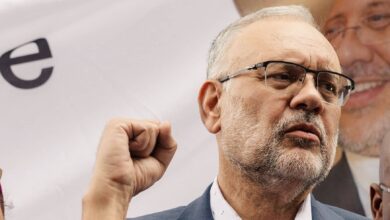
Trump’s Quip on Making Trudeau ‘Governor’ of ‘Great State of Canada’ Raises Eyebrows.
In a characteristically unconventional move, former US President Donald Trump has once again stirred up the diplomatic waters between the United States and its northern neighbor, Canada.
Just weeks after attending a dinner with Canadian Prime Minister Justin Trudeau at his Mar-a-Lago estate in Florida, Trump took to his social media platform, Truth Social, to dub Trudeau the “Governor” of the “Great State of Canada.”
“It was a pleasure to have dinner the other night with Governor Justin Trudeau of the Great State of Canada,” Trump wrote. “I look forward to seeing the Governor again soon so that we may continue our in-depth talks on Tariffs and Trade, the results of which will be truly spectacular for all.”
The dinner meeting, which took place on November 30, came on the heels of Trump’s threat to slap a 25% tariff on Canadian imports unless the country acted to curb the flow of immigrants crossing its southern border.
Trudeau had previously argued that such high tariffs would “kill” the Canadian economy, prompting Trump to jokingly suggest that Canada become the 51st state of the United States to avoid the tariffs. This remark, according to reports, elicited a nervous laugh from Trudeau.
Continuing his playful jabs, Trump told Trudeau that Canada could become two states, and the Prime Minister could become a “Governor” if he could not handle Trump’s list of demands.
The comments have raised eyebrows, as they come at a delicate time in the often complex and nuanced relationship between the two North American neighbors.
Canada’s economy is heavily dependent on trade with the United States, which consumes around three-quarters of its goods and services. The imposition of steep tariffs would undoubtedly have a severe impact on the Canadian economy.
After the dinner, both Trudeau and Trump described the meeting as “excellent” and “productive,” though they remained coy about the specifics of their discussions, which reportedly touched on issues ranging from the fentanyl crisis to trade imbalances and fair trade deals.



